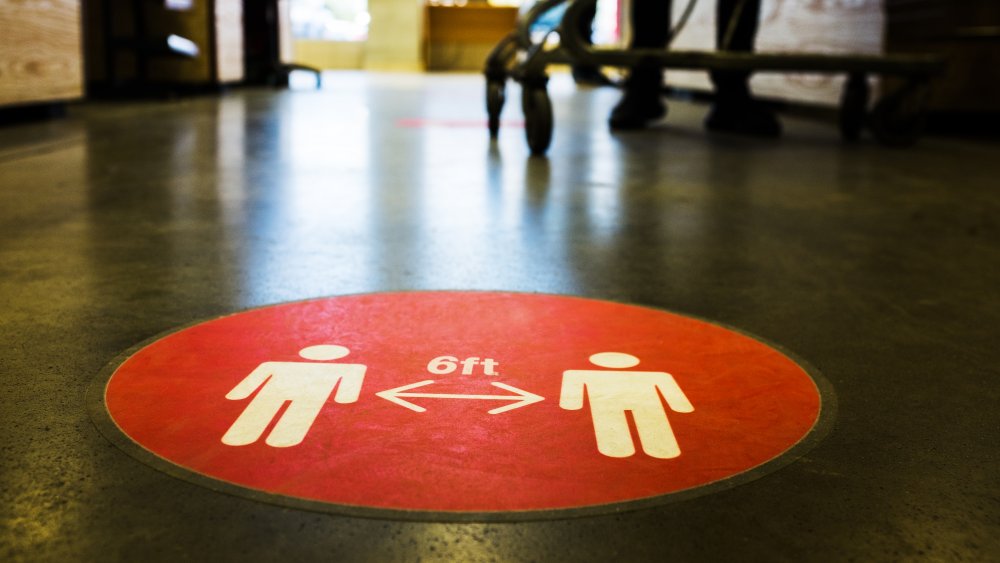Doctor Explains What It Really Means To Be Asymptomatic For COVID-19
One of the sneaky, scary things about the COVID-19 pandemic is the fact that so many of us may actually have it, or have had it at some point, without even knowing it. While you might be inclined to think, "So what? I feel okay, so no harm, no foul," you'd be forgetting one extremely important fact — COVID is extremely contagious, so at any point when you may have been infected, you posed a severe hazard to anyone around you. It's just common human decency not to spread a potentially deadly disease to others in your vicinity, whether they be close friends or total strangers.
With all this in mind, we spoke with Dr. Jennifer Haythe, Associate Professor of Medicine at Columbia University's Irving Medical Center, to find out what it really means if you're said to be asymptomatic for COVID-19. Haythe's definition: "Asymptomatic COVID-19 means a person has the SARS-CoV-2 virus with a positive PCR test and is shedding virus, but without any symptoms of illness." She also confirmed the fact that "an individual can spread the virus even if they have no symptoms," explaining that the virus in an asymptomatic carrier "spreads similarly to those with symptoms."
Why we should be concerned about being asymptomatic
Haythe says that the biggest concern when it comes to so many COVID sufferers being asymptomatic is the fact that "people without symptoms have no idea they are infected and thus are not isolated." She says the real problem comes when "they are not isolated and are interacting with others (job, school, etc.) [so] they may unknowingly spread the virus to those around them."
As to the numbers of how many COVID-infected people are asymptomatic, it may be hard to tell, since many people without symptoms have never been tested for the virus. Still, Haythe cites a JAMA study claiming about 30 percent of COVID patients show no symptoms, while Advisory Board lists several other studies of groups where 42 to 81 percent of those tested were found to be symptom-free. While the good news is, this means the total death rate may be lower than we thought if estimated numbers of asymptomatic undiagnosed carriers are added in, the bad news is, the pandemic is still killing people and asymptomatic carriers may be spreading the disease far and wide without even knowing.
What precaustions should we take against being asymptomatic super-spreaders?
Assuming you don't want to be the pandemic version of Typhoid Mary, Haythe advises that it is extremely important to get tested if you're experiencing any symptoms of COVID-19, going on to add, "It is reasonable to have monthly or bi-monthly screening tests to check COVID status," since it's not like testing clean in September is going to guarantee you haven't contracted the virus come October. As recent events have made clear, COVID-19 can strike anyone, anywhere, at any time. Plus, as we head into winter, there's also the danger of shrugging off any symptoms you may be showing as "just a cold."
Also, not to sound like a broken record (or buffering audio, for those of you born in this century), but wear your mask! Face masks are meant to protect other people from your germs, so not wearing one doesn't make you look cool and fearless, it just makes you look like a jerk who doesn't care about hurting others. Don't be a jerk — be a hero instead by keeping other people safe from your germs even if you're feeling just fine.



